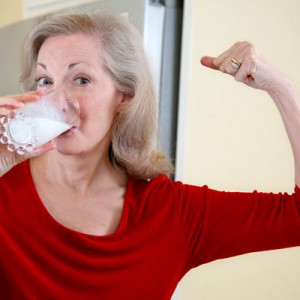 Do you ever wonder what makes your body hold together and what makes it move? Well, aside from some complicated brain and nerve signals and responses, basically, your skeleton does both those things – holds your muscles, ligaments, skin together at the same time it helps move your body where it wants to go.
Do you ever wonder what makes your body hold together and what makes it move? Well, aside from some complicated brain and nerve signals and responses, basically, your skeleton does both those things – holds your muscles, ligaments, skin together at the same time it helps move your body where it wants to go.
As I counsel my patients, a strong skeleton means a strong body, one that can keep you together and moving the rest of your life (which I wish you a long, healthy and happy one!). What keeps your skeleton strong? There are several things, but generally a plain and simple little mineral called calcium is what gives all the bones of your skeleton strength. Let’s talk, then, about what calcium does for your bones and how you can be assured that you get enough of it so your skeleton stays strong.
Calcium and Your Bones
Did you know that 99% of your body’s calcium is stored in your bones? That’s right. The other 1% helps your heart, muscles and nerves function the way they’re supposed to. You’re absolutely dependent on adequate calcium to keep your bones strong and prevent diseases like osteoporosis and fractures.
However, research has shown that about 50% of Americans do not get enough calcium in their diets! In fact, as an adult over 40, you should be getting at least 1000 mg of calcium a day, over age 51 should increase that figure to 1200 mg a day.
Sources of Calcium
There is actually a wide variety of food sources of calcium to choose from, seems it is present in varying amounts in just about everything we eat. Obviously Mother Nature knew how important this mineral is to humans. These include:
Dairy:
- Milk, skim and whole, yogurt, ice cream, 8 oz cup, about 300 mg.
- Cheese, 1 oz, contains about 200 mg.
- Cottage cheese, 8oz, contains about 100 mg.
Fruits and vegetables:
- Almonds contain, 367 mg.
- Collard greens, 266 mg.
- Beans, most varieties, 1 cup, about 100 mg.
- Dates, Medjool, 64 mg per cup.
- Garlic, 246 mg per cup.
- Kale, 93 mg
- Oranges, 72 mg per cup.
- Orange Juice, 1 cup calcium fortified, 300 mg.
- Raisins, 82.5 mg per cup.
- Sesame seeds contain a whopping 989 mg per 100 grams of roasted seeds.
- Spinach, 254 mg per cup.
- Soybeans, 175 mg per cup.
Animal Foods:
- Broth made from meat bones 100-200 mg.
- Salmon, 4 oz, 300 mg.
- Sardines, 4 oz/1 can, 320-450 mg (depending on how densely packed the can).
Supplements: If you are lactose intolerant and cannot stomach dairy products, and/or have food intolerances, you may want to supplement your diet to ensure that you are getting enough calcium. Calcium citrate is one of the best calcium supplements to take, however, do not take more than 500 mg at a time as it may prevent you from absorbing other minerals and vitamins in your foods.
Things That Help Your Body Absorb Calcium
While it’s important to eat calcium-rich foods, and perhaps supplement with calcium, it’s also important to make sure you do some things that assist your body in absorbing and holding onto its calcium. These include:
- Vitamin D – Helps move calcium around your body where it is needed. All of us need Vitamin D, and can get it from 10-15 minutes spent without sun block in the sun. During the fall and winter months when we are inside most the time, supplementing with Vitamin D3 1,000 mg a day, is a good idea to stay healthy.
- Vitamin K – Vitamin K helps your bones regenerate new bone cells.
- Exercise – Regular physical movement helps your body keep moving, especially weight-bearing exercise like yoga, running, walking, dancing, and lifting weights. Weight bearing exercise helps stimulate bone growth and prevent calcium loss. This is crucial as you get older. It will not only help your bones stay strong but actually help you continue to grow denser bones.
Calcium is a life and strength giving mineral that we cannot live without. As I counsel my own patients, it’s crucial that you eat calcium rich foods every day, perhaps supplement calcium, get out in the sun at least 15 minutes a day, and do weight bearing exercise at least 3 times a week. These things will help keep your skeleton strong and you moving and enjoying your life!
Stay Well,
Mark Rosenberg, M.D.
Calcium: Build Strong Bones, http://pubs.ext.vt.edu/348/348-019/348-019.html
11 Fruits and Vegetables High in Calcium, http://www.healthdiaries.com/eatthis/11-fruits-and-vegetables-high-in-calcium.html
Photo Credit: health.com
